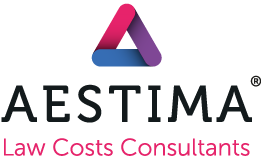Specialist Areas
The vast experience of the Aestima team enables direct insight into the more specialist areas of legal costs. There are often strict deadlines and specific practice directions that apply to these cases, all of which require meticulous attention to detail. The Aestima team ensure that they work well within the boundaries throughout the process on behalf of the client. They can remain safe in the knowledge that deadlines will be met and representation is professionally provided.
Criminal Costs
In criminal cases there are two separate categories of fixed fees in respect of matters proceeding in the Magistrates Court. In the Crown Court there are fixed fees for certain category of crime. These fixed fees are implemented by the Legal Aid Agency. Indictments under tshe Proceeds of Crime Act 2002are the only Crown Court proceedings that are not fixed fees and that can be charged at the prescribe legal aid hourly rate.
Appeals against Extradition Order are heard in the High Court, with the associated civil legal aid prescribed hourly rates applying. The level of the costs determines whether the claim should be submitted to the Legal Aid Agency or the Senior Courts Costs Office for assessment. Appeals by way of the Case Stated are proceedings with section 14(b) of the Legal Aid, Sentencing and Punishment of Offenders Act 2012. As such they are not prescribed and must therefore be attended to by a separate application to the High Court for a Representation Order.
If your client is privately funded and obtains an order for costs payable from central funds, Aestima can assist with not only preparing the claim for costs, but also negotiating with the National Taxing Team.
Arbitration Costs
Costs in arbitrations are governed by Sections 59 to 65 of the Arbitration Act 1996, upon the basis of the general principle that costs should follow the event. Costs of the arbitration are usually determined by the Arbitrator. The Civil Procedure Rules are not binding upon the Arbitrator whom will principally be concerned with whether the costs were reasonably incurred and were reasonable in amount, with reference to case law authorities. There is provision for the costs to be assessed by a court if the Arbitrator is unable or unwilling to do so.
At Aestima, we act for both paying and receiving parties in many arbitrations, by preparing schedules of costs or submissions in opposition to claims for costs.
Supreme Court Costs
With claims for costs to the Supreme Court requiring submission within three months of the date of the costs order, timeliness is crucial. By utilising the services of Aestima, you ensure that that the court is given no reason to disallow your claims due to missing deadlines. It is also important that the bill reflects the Supreme Court practice direction on costs with particular reference to the format of the bill and guidelines upon solicitors’ hourly rates and counsels’ fees. Justification to exceed the guideline rates must accompany the bill and assistance can be given in dealing with the same.
Judicial Committee of the Privy Council
Like the Supreme Court, the Privy Council has its own rules and practice directions for assessing costs. This means that there are peculiarities and pitfalls that must be avoided during the process. At Aestima, our knowledge and experience of dealing with such cases means clients can rely on us to work within the boundaries, whether they act for the receiving or paying party.
Tribunals, including Employment Appeal Tribunal and Upper Tribunal (Lands Chamber)
In many tribunals, a request for costs must be made either during or at the end of a relevant hearing or in writing within 14 days of the sealed date of the relevant order. It is therefore imperative that solicitors give consideration to the question of costs well before any final hearing so that the necessary claim for costs can be prepared in advance.
Other Tribunals maintain the power to assess the costs either on paper or by way of an oral hearing. At Aestima, we have the capacity and the knowledge to deal with claims for costs in any forum or tribunal, meeting deadlines with accuracy and punctuality.
Case Scenarios
Whilst a great deal of litigation and costs recovery concerns routine disputes, at Aestima we pride ourselves on having a working knowledge of dealing with costs in the more unusual forums, including the Privy Council and the Supreme Court.
Whilst the Supreme Court now largely follows the Civil Procedure Rules, it does retain its own Practice Direction with regard to costs. This affects both the format of the Bill and the inter partes recovery. The Supreme Court has always strictly enforced a three month time limit for lodging a bill of costs for assessment and therefore it is imperative when seeking to recover costs that your law costs consultant is not only aware of the format requirements, but also the procedural requirements that ensure your claim is not time barred


